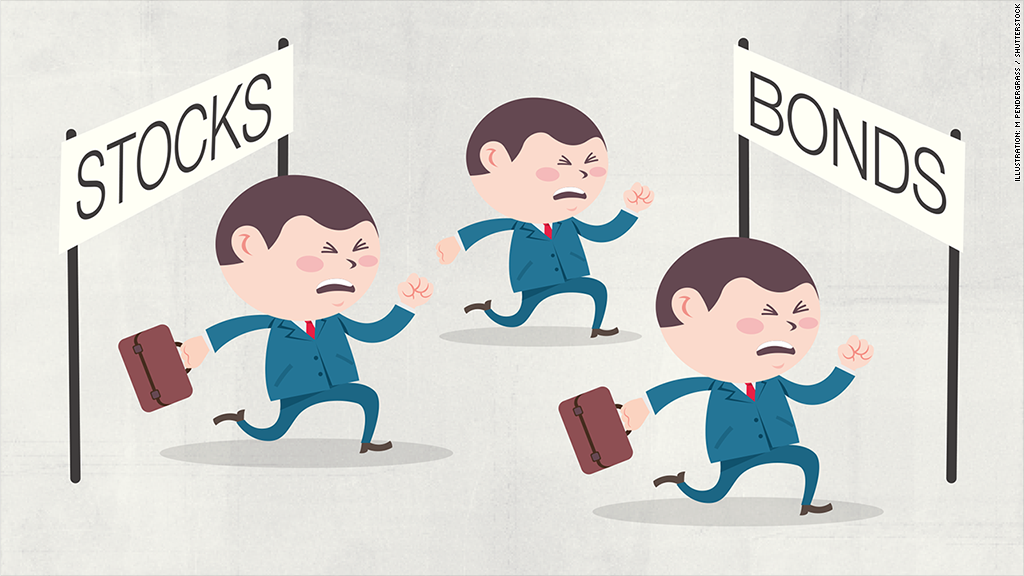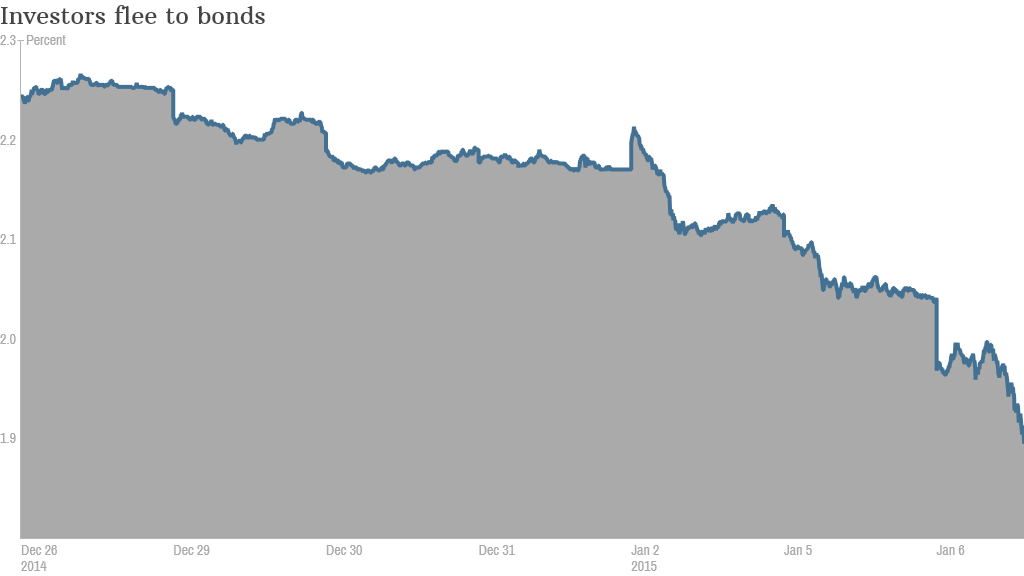
Need more proof the stock market is freaking out? Just look at bonds.
The yield on the U.S. 10-year Treasury note has been on a post-holiday weight loss plan. It was around 2.25% the day after Christmas. It touched a low of 1.89% on Tuesday.
Stocks and bonds move around all the time, but the 2% yield is a red-flag threshold. It means that investors are basically willing to accept an interest rate on a bond that will lose them money in the long-term, since U.S. inflation typically hovers around 2%.
That's how worried investors are.
CNNMoney's Fear & Greed Index now reads "Extreme Fear." Today was the first time the 10-year government bond yield closed below 2% since May of 2013 -- the height of the "taper tantrum."

Markets hate uncertainty. With crude oil now trading solidly below $50, experts predict it could go as low as the $30-range.
"It's the uncertainty over where oil will find support that has investors in a paralysis," wrote Tim Anderson, managing director of trading firm MND Partners. "It's just impossible to define the extent of winners and losers until oil prices reach a new equilibrium price."
Related: Stocks should fall further. Here's why.
The Dow is down 2.5% already in January. But the story goes beyond oil. Global investors are even more edge as Europe teeters on the verge of recession, China slows, and Russia and Japan are actually contracting.
One of the great surprises of 2014 was how well U.S. government bonds performed. As the U.S. Federal Reserve ended its bond-buying stimulus program last year and hinted at raising interest rates in 2015, the expectation was that yields would rise and bond prices would fall.
The opposite happened because so many foreign buyers continued to prefer the safety of American bonds, even if the yield wasn't great.
"If you want to buy AAA sovereign debt, there's not that much of it to go around," says Dan Morris, Global Investment Strategist at TIAA-CREF. He compares U.S. Treasuries to a "global asset class."
Global scare: There's so much concern in Europe right now that the yield on German 1-year to 5-year bonds and French 1-year to 3-year bonds is actually negative. That means that investors are basically paying to hold those bonds.
In another sign of just how much panic is out there, the yield on the German 30-year bond fell below Japan's 30-year bond yield on Tuesday. That's an extremely rare occurrence since the Japanese economy has basically been in stagnation for two decades with notoriously low bond yields.
Related: Cheap oil is costing me my job
The question for investors is whether to follow the masses into bonds or stick with stocks. As CNNMoney's Paul La Monica points out, the U.S. market is overdue for a correction -- a 10% drop or more.
But Michael Block of Rhino Trading Partners went a step further. In a note to clients today, he called this market dip a a gift.
"I am ready to buy U.S. stocks for a trade here and I am making that call right now at 12:30PM ET," he said.


